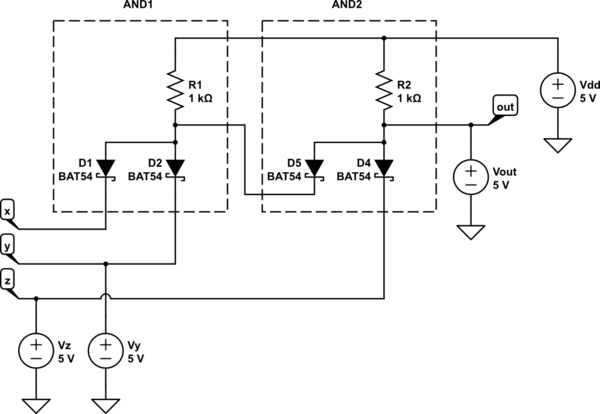Is there a type of logic gate with floating inputs (I'm using that term loosely) such that a fixed voltage on an output could "propagate backwards?" Let me clarify with examples...
Say you had an AND gate with one input fixed at 5V (assuming binary 0/1 represented by 0V/5V, respectively), the other input unconnected, and the output unconnected. Then you connect the output to 5V. Is there a type of gate (material/construction) for which the voltage of the remaining unconnected gate would then go to 5V, since that is the only binary value/voltage that satisfies the AND truth table, given the voltages of the other connections?
Furthermore, could such behavior propagate backwards to earlier gates? Imagine two AND gates connected as described by:
out = AND2(AND1(x, y), z)
If y, z, and out are all fixed a 5V (binary 1) and x is unconnected, might the output of the AND1 gate (unnamed input to the AND2 gate) be forced to 5V, and subsequently the x input of AND1 be forced to 5V?
Finally, if there indeed is a type of logic gate that exhibits the behavior described above, what would happen when fixed connections result in an unsatisfiable condition? For example, under the equation/connections described above, out==1, z==1, y==0? In which case there is no value of x that would result in a state of the composite circuit that is in the composite truth table.

